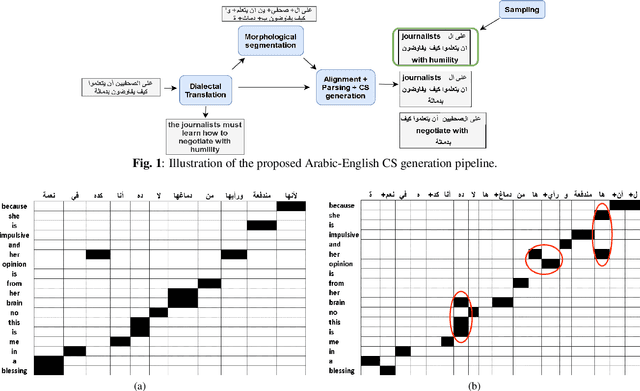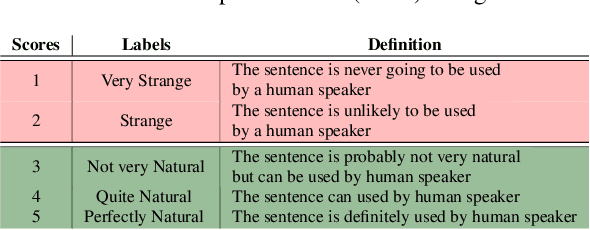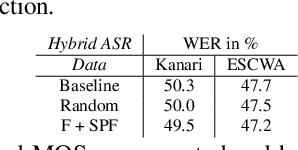Code-Switching Text Augmentation for Multilingual Speech Processing
Paper and Code
Jan 07, 2022



The pervasiveness of intra-utterance Code-switching (CS) in spoken content has enforced ASR systems to handle mixed input. Yet, designing a CS-ASR has many challenges, mainly due to the data scarcity, grammatical structure complexity, and mismatch along with unbalanced language usage distribution. Recent ASR studies showed the predominance of E2E-ASR using multilingual data to handle CS phenomena with little CS data. However, the dependency on the CS data still remains. In this work, we propose a methodology to augment the monolingual data for artificially generating spoken CS text to improve different speech modules. We based our approach on Equivalence Constraint theory while exploiting aligned translation pairs, to generate grammatically valid CS content. Our empirical results show a relative gain of 29-34 % in perplexity and around 2% in WER for two ecological and noisy CS test sets. Finally, the human evaluation suggests that 83.8% of the generated data is acceptable to humans.
 Add to Chrome
Add to Chrome Add to Firefox
Add to Firefox Add to Edge
Add to Edge